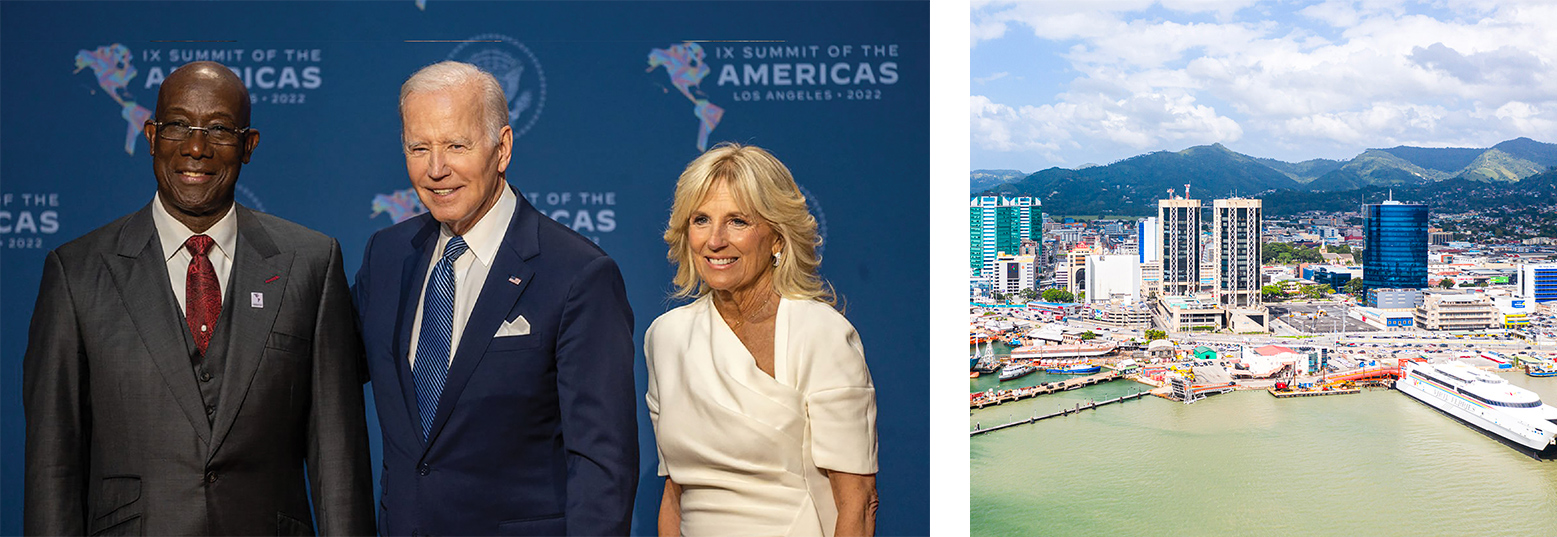
A maturing oil and gas giant with a vast resource of young, energetic, educated and experienced people determined to take their nation to the next level
The largest oil and natural gas producer in the Caribbean, Trinidad and Tobago has been involved in the petroleum sector for more than 100 years. A key driver of economic growth throughout the last century, the country’s energy exports in 2022 were valued at $9.78 billion and accounted for around 80% of all its exports.
With the sector holding such importance, the recent approval from the US government to waive ongoing sanctions against Venezuela and allow Trinidad and Tobago to develop Venezuela’s Dragon gas field, which contains 4.2 trillion cubic feet of the hydrocarbon, has taken on extra significance. The country now has the opportunity to import Venezuelan gas and convert it into liquefied natural gas (LNG) for the downstream petrochemical and LNG sectors, thus helping secure jobs, create foreign exchange and continued business opportunities.
Prime Minister Keith Rowley lauded the deal and hopes that further cooperation in the region can come to fruition, saying: “In today’s economic environment, investments in enabling infrastructure and technology can be costly even to the point of being prohibitive. Trinidad and Tobago has the energy infrastructure to monetize hydrocarbon resources produced by its Caribbean neighbors and can do that now. Not only does the country possess 10 ammonia plants, but we have seven methanol plants, four LNG plants and an iron and steel complex.”
The deal was also another example of the strong ties between Trinidad and Tobago and the US, with the Caribbean country exporting $4.3 billion of goods to the US in 2021. “We are reinforcing the closeness, strength and depth of our more than 200 years of friendship and cooperation,” said Candace Bond, US Ambassador to Trinidad and Tobago when the Dragon field agreement was announced.
“We share Trinidad and Tobago’s urgency in contributing to global energy and food security. We have listened to the government’s message that it has the capacity and willingness to ameliorate economic and humanitarian crises around the region and the world.”
A transformative moment for the region’s energy security as Venezuelan supply is brought back to the global market, the deal also proved that the US has continued confidence in the leadership of Trinidad and Tobago and its impressive infrastructure.
Leveling up across the board
While the energy sector continues to play an important economic role, with a growing focus on developing renewable energy sources, the government has also identified numerous ways to move the country forward. Under the guidance of Rohan Sinanan, Minister of Works and Transport, there are plans to invest heavily in infrastructure and make the country even more accessible. This covers everything from major road construction projects to upgrading Piarco International Airport — with the construction of a new $200 million terminal — and overhauling the country’s ports.
There is also a growing focus on digitalization across a variety of public utilities, from using the latest technology to track issues with water supply to ensuring the best possible solutions are deployed across its vast telecommunications network.
Trinidad and Tobago wants to lead the way in the Caribbean when it comes to utilizing technical solutions and digitalizing the economy. Driving this charge is the Trinidad & Tobago International Financial Centre, which has been mandated to improve financial inclusion, the acceleration of digital payments and the creation of a fintech hub.
Embracing fintech is especially important when it comes to leveraging innovations in robotics, blockchain and even artificial intelligence. This can lead to groundbreaking technology solutions such as peer-to-peer transfers and robo-advisory services, which can gather information through automated algorithms and choose the best investments.
Investing in the future
This digital future is being firmly embraced by Trinidad and Tobago’s leaders, which matches the interests of so many young people in the country. There are more than 300 students a year graduating with a degree in technology and the government want to ensure that this talent is not lost to other countries, but is instead utilized on home soil.
Such is the commitment to providing improved education to its young people, the government allocated a sum of $1.1 billion to the Ministry of Education in its 2022-23 budget — the single largest allocation to any government ministry, including health and national security.
This comes as no surprise as Trinidad and Tobago has always been willing to invest in its human capital. And under the guidance of Prime Minister Rowley, there remains a want and desire to make sure the collective skills and knowledge of the next generation continue to drive the country forward in a truly exciting manner.
